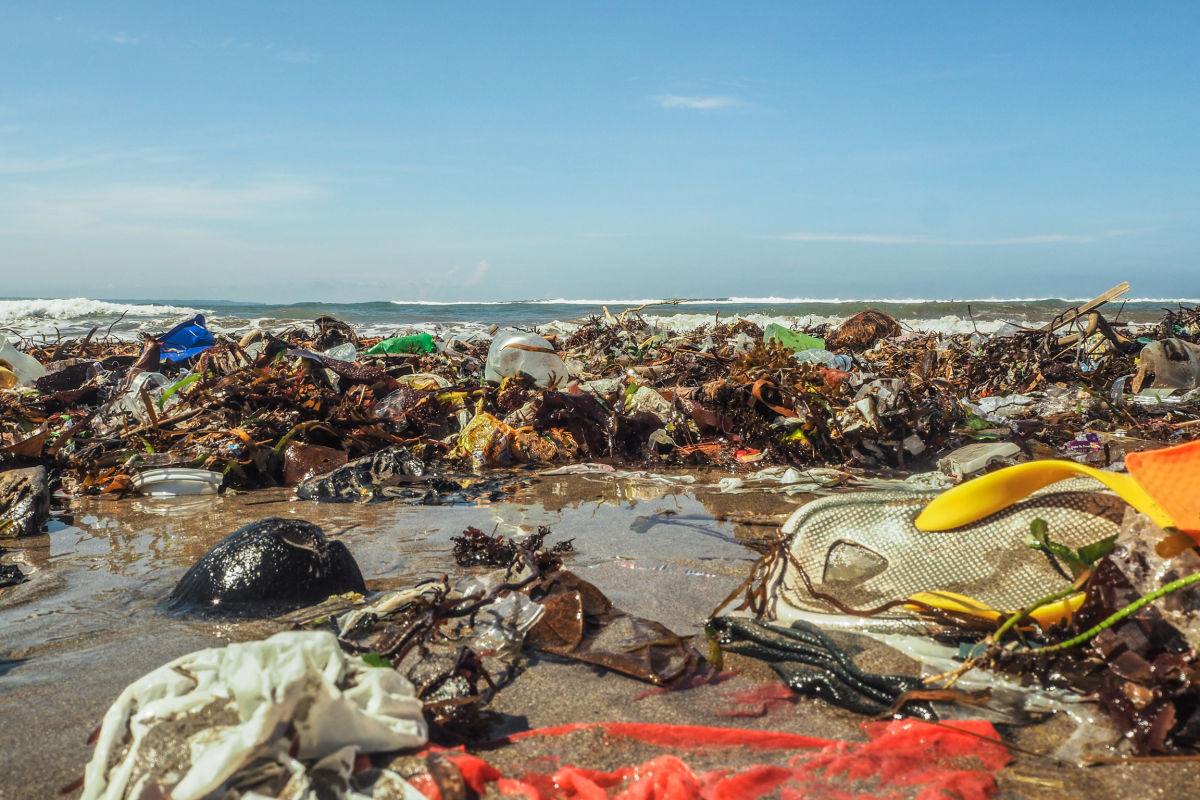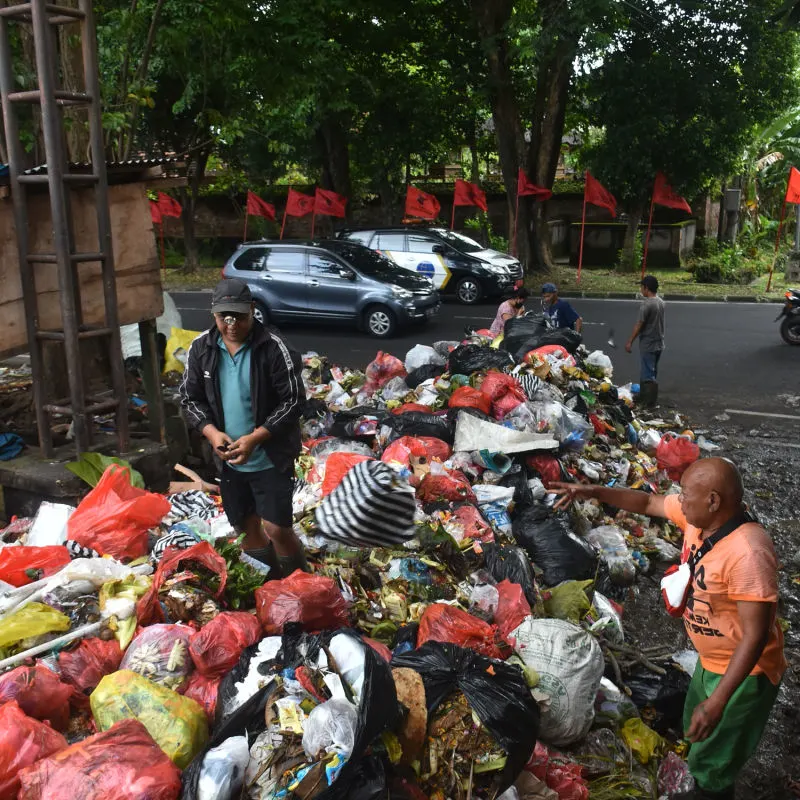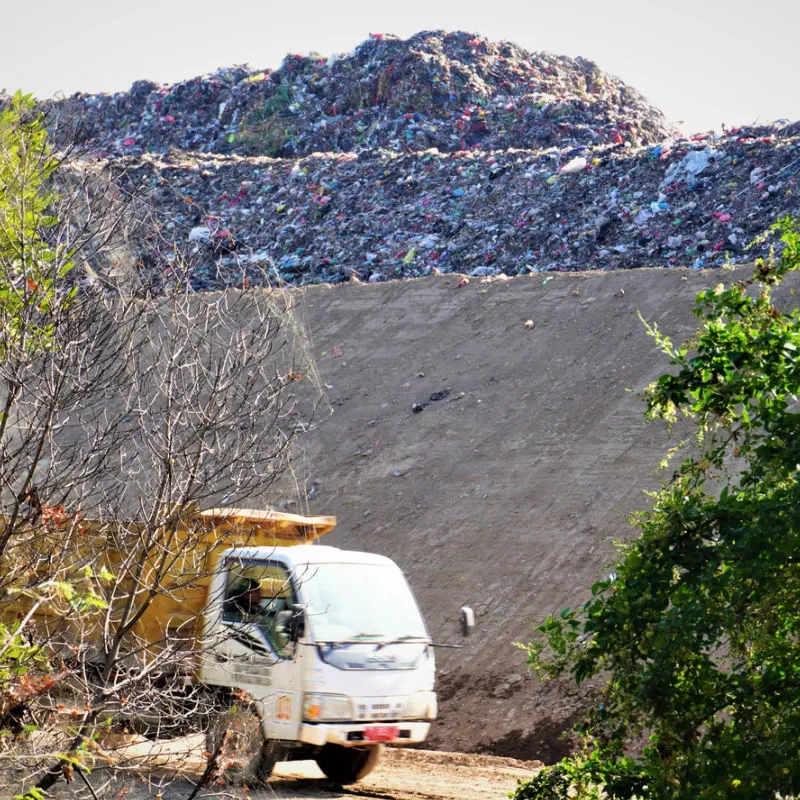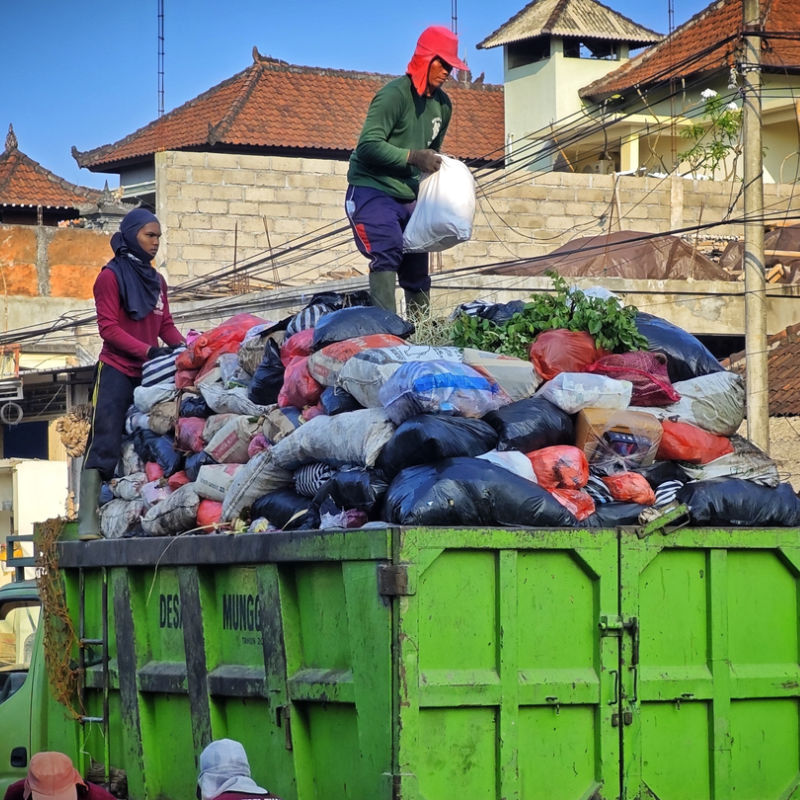Bali’s issues with waste management are no secret. It is an issue that affects local residents, tourists, and, of course, the environment too.
Over the last decade, the situation has largely gone from bad to worse, but local leaders have worked to implement new solutions. Many of these solutions have had an impact, but with the sheer scale of the problem, more needs to be done.

The Bali Provincial Government has just signed a new partnership that is set to change the way in which waste is managed across the island.
While for many aspiring holidaymakers, digital nomads, and ex-pats, Bali conjured images of pristine white sandy beaches and vast expanses of terraced rice paddies backed by dense jungles; the reality in many areas is little different.
Over the last decade, it has become ever more apparent that as the open landfills become fuller and localized waste management operations are put under more pressure, more and more trash has been filling waterways and is being dumped in unofficial landfill sites, often on the edges of some of Bali’s most beautiful natural landscapes.
Environmental NGOs like Mudfish No Plastic and Sungai Watch have gone to great lengths to tackle illegal landfills and beach plastic and create new systems to recycle and repurpose inorganic waste.
Now, the Bali Provincial Government has partnered with a Chinese environmental development company to implement large-scale solutions to Bali’s waste management woes.
CN Weiming is dedicated to “proving first-rate technologies, products, and services for environmental protection of society.” They believe in creating “clean, healthy, and sustainable living environments for human beings.”
The new partnership was signed off by the Acting Governor of Bali, Sang Made Mahendra Jaya, who gave his backing to the USD 225 million investment from CN Weiming.
In a meeting held in Denpasar on Saturday 7th, September, a top executives from CN Weiming met with the Bali Provincial Government to seal the deal on the multi-million dollar initiative.
This is not the first project Weiming is operating in Indonesia, the company is also developing a highly contentious ‘high-nickel matte nickel-containing metal’ project in Maluku Province.
CN Weiming has outlined a waste treatment plant that will completely change the way in which waste is managed across the island.
Starting at 1,500 tons of waste per day in the first phase and moving to 2,250 in the second phase, CN Weiming was committed to constructing a waste power plant in Bali to China’s AAA standards.
Speaking to reporters following the signing of the agreement, the President of Weiming Environment Protection Group, WuLiang Cheng, said, “This waste treatment project uses the BOO (Build-Operate-Own) model with a franchise period of 40 years. After the franchise period ends, the project assets remain the property of Weiming Environmental Protection.”
Initial plans suggest that the new project will be based at the Temesi TPA in Gianyar Regency, a central location to one day manage the majority of Bali’s inorganic waste.
At present, Temesi TPA receives around four tonnes of waste per day, whereas the largest landfill in Bali, the Suwung TPA, receives upwards of 200 truckloads of mixed waste per day.

The waste incineration technology used by CN Weiming produces high-temperature flue gas to produce steam and, in most cases, drive power plants. The exhaust gas is purified and disposed of in accordance with China’s AAA standards.
The pollution associated with the waste management plant, in addition to the lasting impact of what will be a major construction effort, will be a huge cause of concern for many residents in Bali.
CN Weiming is one of the world’s leading waste management solution providers, the company explains they “[own] more than 100 patents in waste incineration boiler, flue and gas cleaning facilities, automation control, sewage leachate treatment, kitchen waste treatment, and other fields, Weiming ranks the first enterprises to have independent patents in waste incineration power generation technology.”

In explaining the waste treatment system they have created, the company explains, “Flue gas discharge is above the national standard, and dioxin content is also above the EU standard. With automatic online monitoring and networking with the Ministry of Environmental Protection, real-time flue gas discharge monitoring is therefore achieved.”
Adding “Discharge of wastewater, waste gas, and industrial residue must comply with national environment protection regulations. Slag shall be reused in brick-making or roadbed laying. Fly ash can be stabilized before it ends up in a landfill. Landfill leachate, after being treated, can be taken into municipal pipe network or directly recycled.”

Following the signing of the initial agreement, Acting Governor Jaya received a Letter of Intent from the CN Wieming President WuLiang Cheng as the first step in this cooperation. Further details are expected by the end of the year.
During a visit to Bali last week the Indonesian Minister for Maritime Affairs and Investment, Luhut Binsar Pandjaitan ordered the Bali Provincial Government to explore the development of refuse-derived fuel as an alternate waste management solution in the region.
Remove All Ads & Unlock All Articles… Sign up for The Bali Sun Premium

Plan Your Bali Holiday:
Book The Best English Speaking Drivers For Airport Transfers & Tours
Choose From Thousands of Bali Hotels, Resorts, and Hostels with Free Cancellation On Most Properties
Book Cheap Flights To Bali
Don’t Forget Travel Insurance That Covers Medical Expenses In Bali
For the latest Bali News & Debate Join our Facebook Community
SUBSCRIBE TO NEW POSTS
Enter your email address to subscribe to The Bali Sun’s latest breaking news, straight to your inbox.
Discover more from The Bali Sun
Subscribe to get the latest posts sent to your email.

Agus Ray
Friday 18th of October 2024
Incineration is the best solution to despose municipal solid waste in the world,very low emission, very high standard, no smell, much better than most of the coal power plants in the world. See the cases in Shanghai, China, they have the largest WtE plant in the world, with more than 10000t/d capacity in a single plant, while Shanghai is one of the most developed cities in Asia. You can also see the case in Hanoi, Vietnam, they have built the largest WtE plant in ASEAN, 4000t/d, and are continue building more projects. In Japan, they have the most WtE plants in the world. And in the USA and Europe, they built hundreds of WtE plants already. To find the solution of desposing the waste, the best way is to see what other countries do while they are facing the same problem, especially when they are more developed. They investigated this problem 20 years ago, and find incineration is the best solution. There might be some other solutions, such as RDF, but the reality told us it's not the best one, or even not a good one. RDF will only sort the waste, but will not reduce the waste, especially for the wet waste. RDF works in the Europe, because they have a strict law for the discharge of waste by the resident, the pepople pay for more than 80 Euros per ton for the despose of waste, and the waste classify works well there, solid plastic, paper,clothes could be maded into RDF, while the kithen waste could be used for anaerobic digestion.This way is definitely not suitable for ASEAN countries, because they cannot afford it.
Martin
Friday 20th of September 2024
I thought the trash was going to be shipped to China?
Paul
Saturday 14th of September 2024
What's the point of the 150k visa then I thought it was to be used 4 clean up bali not give it to a different nation or is it being kept for a better idea
Peter
Thursday 12th of September 2024
Maybe it's not the tourist you only have to go out to the villages to see that
Steve b
Saturday 14th of September 2024
@Peter, all that rubbish you see after first rains well that's piling up as we speak in readiness of the great traditional bali toilet flush coming to you soon
J West
Thursday 12th of September 2024
What happened to the days when Balinese could poop in a field behind the house , no one wore shoes and bubble wrap didn’t exist.